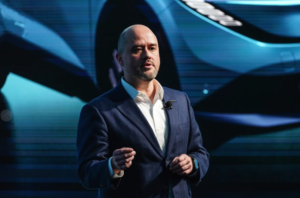A Georgia jury has ordered Bayer, the parent company of Monsanto, to pay nearly $2.1 billion in damages to a man who claims that the company’s Roundup weed killer caused his cancer, according to his attorneys.
This verdict is part of an ongoing series of legal battles that Monsanto has faced over its Roundup herbicide. The company has announced plans to appeal the ruling, which was issued late Friday in a Georgia courtroom, in an attempt to reverse the decision.
The damages awarded include $65 million in compensatory damages and $2 billion in punitive damages, as reported by law firms Arnold & Itkin LLP and Kline & Specter PC. This represents one of the largest legal settlements related to Roundup so far.
John Barnes, the plaintiff, filed his lawsuit against Monsanto in 2021, seeking damages for his non-Hodgkin’s lymphoma. Kyle Findley, the lead attorney for Barnes, stated that the verdict would help position his client to receive the necessary treatment moving forward.
“It’s been a long journey for him, and he’s relieved that the truth about the product has finally come to light,” Findley said on Sunday. He described the verdict as an “important milestone” and emphasized that it was yet another example of Monsanto’s refusal to take responsibility for exposing people to the harmful effects of this toxic product.
Germany-based Bayer, which purchased Monsanto in 2018, continues to deny that Roundup causes cancer. However, the company has faced over 177,000 lawsuits related to the weedkiller and has set aside $16 billion to settle some of these cases.
In a statement, Monsanto expressed that Friday’s verdict “contradicts the overwhelming body of scientific evidence and the consensus of regulatory bodies and their global scientific assessments.” The company reiterated its confidence in the safety of Roundup products.
Roundup is designed to work with genetically modified seeds that are resistant to its harmful effects, making it effective for a variety of crops such as corn, soybeans, and cotton. This allows farmers to increase their yield while conserving soil through reduced tilling.
Although some studies link Roundup’s main ingredient, glyphosate, to cancer, the U.S. Environmental Protection Agency (EPA) has stated that glyphosate is unlikely to be carcinogenic to humans when used as directed. However, many lawsuits claim that glyphosate does cause non-Hodgkin’s lymphoma, arguing that Monsanto has failed to warn the public about the serious risks of the product for years.
Findley stated that evidence in Barnes’ case reveals “years of cover-ups” and “backroom dealings.” He accused Monsanto of ignoring multiple scientific studies concerning Roundup’s toxicity and claimed the company made efforts to deny the connection between the product and non-Hodgkin’s lymphoma.
Friday’s verdict marks the fourth Roundup-related case that Findley’s team has won. The largest verdict was awarded in Philadelphia in January 2024, with damages totaling $2.25 billion. Findley also mentioned that his law firm represents many more clients in similar situations to Barnes’.
Monsanto, on the other hand, insists that it remains committed to defending its cases in court and argues that its broader record in Roundup-related litigation continues to demonstrate the safety of its products. The company claims to have won 17 of the last 25 related trials, with some prior damage awards being reduced.
Bayer has recently ramped up efforts in several U.S. states to shield pesticide companies from lawsuits claiming they failed to warn consumers about cancer risks, as long as their labeling complies with EPA regulations. Bayer and other industry supporters argue that the costs of ongoing litigation are unsustainable and could affect Roundup’s availability in the future. However, critics of such legislation warn that it would limit accountability for companies.














